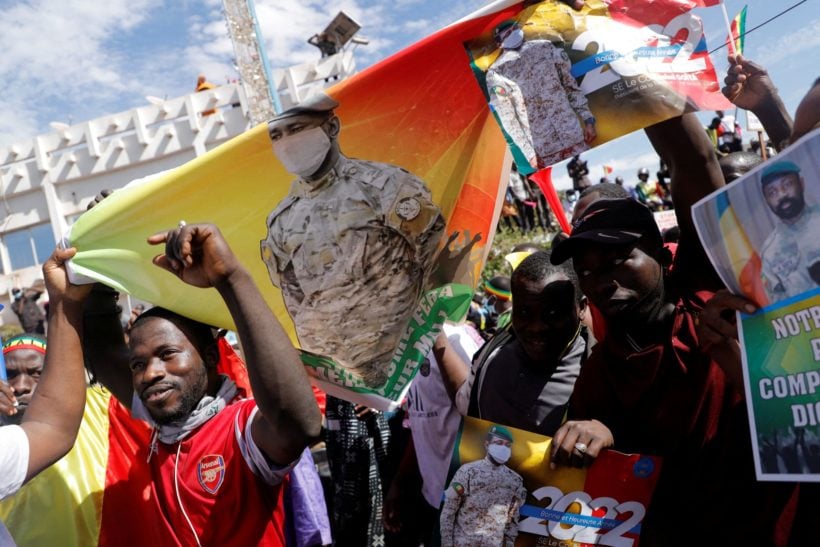
BAMAKO, Feb 2 (Reuters) – Mali has failed to meet a debt payment of 2.7 billion CFA francs ($4.67 million) on treasury bonds, its finance ministry said on Wednesday, blaming sanctions imposed by West Africa’s economic bloc and regional central bank.
The ministry said the deadline to meet the coupon payments on two sets of bonds had passed on Jan. 28 with it unable to comply with its obligations because of measures that have largely cut it off from regional financial markets.
“Because of these restrictions and despite having sufficient reserves in its treasury, the central bank did not proceed to meet the bond repayment scheduled for Jan. 28,” the ministry said, adding that Mali would pay its debts as soon as the restrictions are lifted.
The ECOWAS economic bloc and regional monetary union UEMOA both imposed sanctions on Mali on Jan. 9 after the military junta that first seized power in a 2020 coup decided to delay a national election.
Read more: Mali debt sale cancelled because of sanctions over election delay
ECOWAS has frozen Malian state assets in member countries’ commercial banks and suspended non-essential financial transactions with the country.
The UEMOA, which has a regional central bank that administers the CFA franc currency, also imposed sanctions, instructing all financial institutions under its umbrella to suspend Mali with immediate effect.
As well as difficulties with its West African neighbours, Mali has been mired in a diplomatic crisis with former colonial power France and European allies.
The junta took power in August 2020, then staged a second coup last May against a transitional government that had been put in place. It said it would organise elections in February this year, only to delay them and propose staying in power until 2025.
(Reporting by Tiemoko Diallo Writing by Estelle Shirbon Editing by Kevin Liffey and David Goodman )